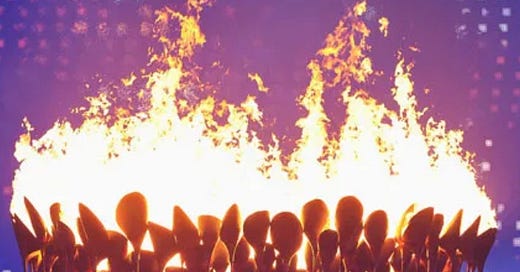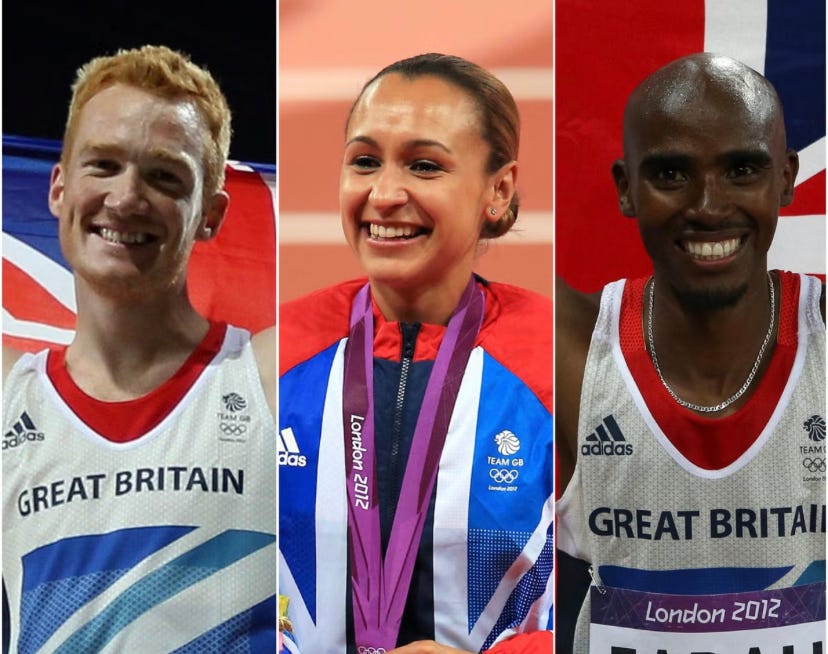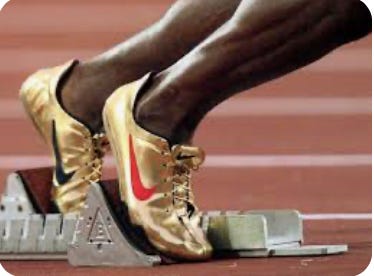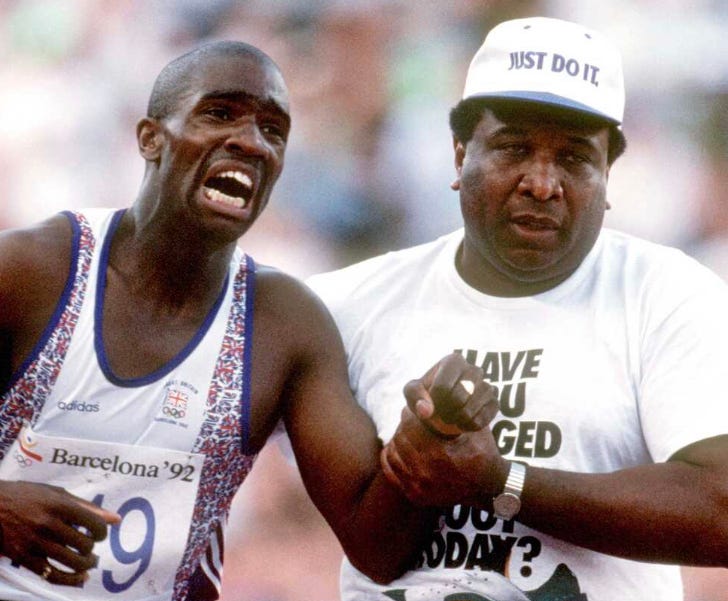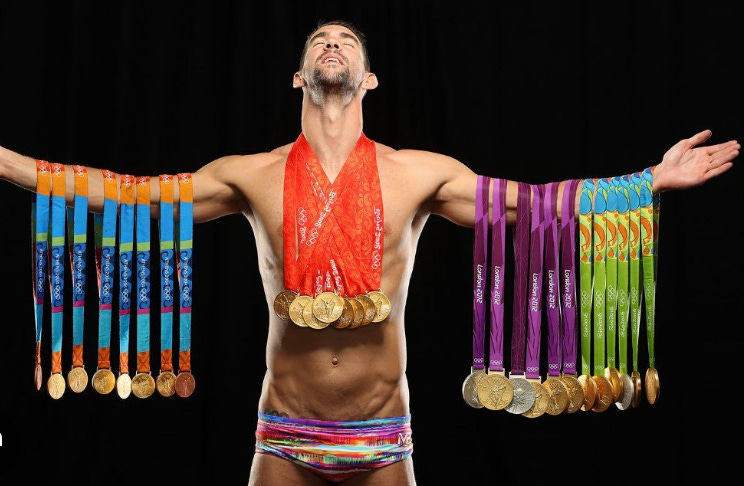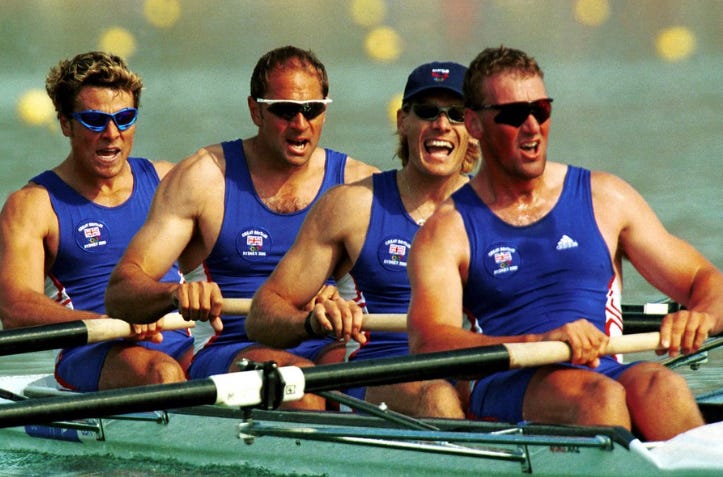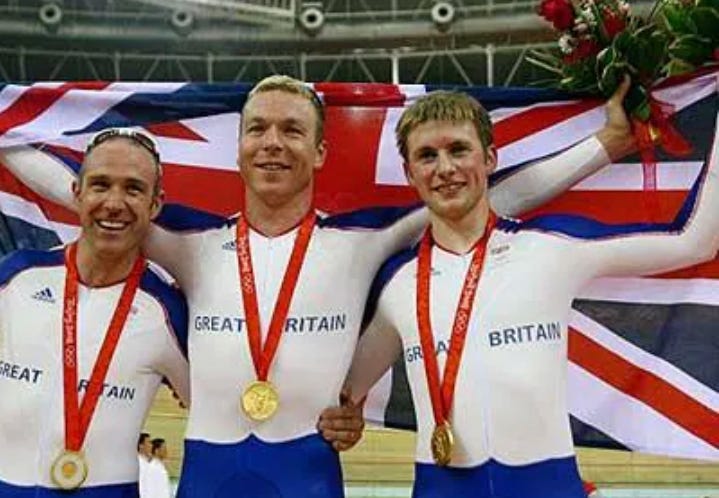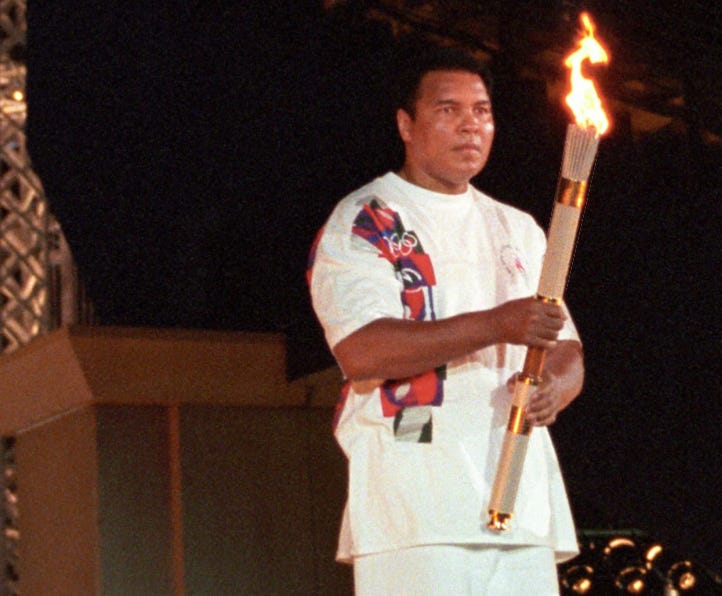Faster, Higher, Stronger - Together
The Olympics is a special sporting event unlike anything else on the world stage. It brings together athletes from virtually all countries to compete in a huge variety of sporting disciplines and winning a medal is widely viewed as having achieved the pinnacle in many events (not including those such as football where the competition is Under-23s and therefore doesn’t constitute going against the best of the best).
It is followed avidly across the globe and provides an opportunity for many sports that may not always be widely accessible to casual viewers to show off what they involve. It is almost a guarantee after an Olympics that there will be an increase in participation of events such as BMX, climbing or kayaking just because people have had a chance to watch them and become interested.
For individuals, it is a chance to write themselves into history and provide special moments that will be remembered forever. From Tommie Smith and John Carlos raising black gloves fists in protest to Carl Lewis dominating in LA, from Spitz through to Phelps, from British struggles to domination in rowing and cycling, people of all ages will have something to look back on and connect personally with in an Olympic Games.
As the Olympics kicked off properly with the opening ceremony yesterday evening and the full programme of events starts today (although there has already been quite a bit to watch in certain sports) it is only fitting that I write about my most prominent Olympic memories and moments. As this is a personal account, there will only be moments from 1992 onwards but there will be further articles throughout the course of the games that may talk more about events that happened previous to this.
Super Saturday
I couldn’t really start anywhere else. The London 2012 Olympics were an incredible time to be a fan of British sport where the whole nation got behind their athletes who rewarded them by winning medals in record numbers, but it was the middle Saturday of the games that provided the most intense satisfaction. Unfortunately, I didn’t move down south for university until the September so missed the opportunity to attend the games myself by a few weeks, but on this day, I was glued to the TV in the living room with the house to myself as my Mum and Dad were away in holiday.
Most people go straight to talking about the attletics happenings on this day (and we will do this in just a minute) but rather than being condensed to just a 44-minute period in the Olympic Stadium, Super Saturday actually brought British success throughout.
It started on the Thames in the morning where the men’s coxless four (Alex Gregory, Tom James, Pete Reed and Andrew Triggs-Hodge) powered to victory to make it 4 golds in a row for Great Britain in that event. This was then continued in the women’s lightweight double sculls when Sophie Hosking and Katherine Copeland swept home for another gold. Mark Hunter and Zac Purchase also took a silver in the men’s version of this event. The British rowers were peerless throughout the meeting but this day stands out for what came next.
The action continued into the velodrome, another great area of strength for the British in modern Olympic times, where the women’s team of Dani King, Joanna Rowsell and Laura Trott (her first of two golds at the games) took the win in the team pursuit competition.
Finally we moved over to the Olympic Stadium where the atmosphere was incredible. This was heightened even further by the fact that there was real expectation for medals for Team GB in a couple of events. Nobody could quite have predicted how it would all unfold though.
Jessica Ennis was one of the faces of the games. The heptathlete had built up momentum with one European and two World titles in the years prior to 2012 and had had a great first day of competition, gathering her highest ever points tally at that point and setting two personal bests in the process. She carried on this form on the second day, setting another PB in the javelin (probably her weakest event) to mean that it was pretty much a foregone conclusion that she would take the gold. The crowd were in raptures as she romped home to victory in the 800m to claim her medal.
Spectators hardly had a chance to catch their breath as another of the British favourites was up next. Mo Farah had a steady rise up the ranks but had sprung to prominence the previous year when he won 5,000m gold and 10,000m silver, showing glimpses of finally breaking African dominance in these events. The 10,000m was first up here and, although Mo hadn’t yet won a world gold in this event, the crowd were still hoping for a victory. The race began and the fans were ready to explode.
While the runners were circling the track, there was another event for the crowd to follow - the men’s long jump. Greg Rutherford had always been a consistent performer but had never taken gold in a major event and wasn’t even necessarily guaranteed to be in the medal hunt, although he did have one of the longest jumps that year. However, something was in the air that night and, propelled by the successes of his teammates and the electricity of the crowd, he leapt to 8.31m in the fourth round, as the 10,000m pack raced around in the background, to take control of the competition. No one could match his mark and he took gold to the delight of the whole stadium.
As this was going on, Farah was biding his time and waiting to strike. He did so as the bell went to mark the start of the final lap, striding to the front and taking it to the field. He kicked going into the final bend, and again moving down the home straight, and no one could go with him. Mo became the first Briton to win the 10,000m and capped off a superb day while I, like many others across the nation, jumped up and down in my living room cheering him on as if I were in the stadium myself.
Johnson and Bolt Break Records
Atlanta ‘96 wasn’t fantastic for Team GB, with only Sir Steve Redgrave and Matthew Pinsent taking gold in rowing. However, there were plenty of stars of the games, none more so than American sprinter Michael Johnson, resplendent in his golden running shoes that were a precursor to his eventual results. Being 11 and having recently got a TV in my bedroom, I was able to stay up into the middle of the night to watch Johnson break the Olympic Record in the 400m and absolutely smash the World Record in the 200m with a time of 19.32 which at that time I felt would last forever.
It didn’t, but it did last for 12 years, until it came up against the test of the great Usain Bolt in Beijing in 2008. Again I had to stay up late, but not quite into the middle of the night as I was travelling in New Zealand at the time which was 4 hours ahead. I remember everyone gathering in the shared living space, firstly for the 100m where the great Jamaican smashed the World Record to record a time of 9.61 whilst having started celebrating with about 15 metres still to go and then again for the 200m where he destroyed the field once more but had to push to the line this time to beat Johnson’s record by just one hundredth of a second. Incredible.
Redmond Finishes His Race
Not all memorable Olympic moments are those of medal success. Sometimes there are displays of bravery or personal improvement that really grasp the attention of the crowd. One such occasion took place in Barcelona in 1992 involving British 400m runner Derek Redmond. He had won medals in the relay in previous competitions and lined up for his semi-final here with the hope of getting through to the final to give himself a chance of individual glory. He started strongly but on the back straight he pulled up sharply. It turns out that he had torn his hamstring. However, Redmond refused to give up, hobbling on in agony, determined to finish his race. Things became even more unbelievable when another man appeared out of the side of our screens, attempting to get past a steward to reach Redmond. It turns out it was his father, who promptly put his arm around him to help him carry on. Stewards tried to get them to stop but they were both determined and Redmond eventually crossed the finish line, not an official champion, but a champion in the hearts of all those watching for his bravery.
Thorpe is Great but Phelps is Better
Alongside athletics, swimming is one of the banner events of the games that draws great attention and publicity. In the build up to the Sydney games in 2000 (another one that us Brits had to stay up into the middle of the night for) no one was more publicised than young Ian Thorpe. The Aussies take their swimming very seriously and the 17 year old ‘Thorpedo’ was billed as the young prodigy who was going to dominate for years to come. He pretty much lived up to his billing, taking 3 golds and 2 silvers across the meeting.
Thorpe, by then 21, backed this up in Athens four years later with another 2 golds, a silver and a bronze, but by this point, there was already another, younger swimmer on the scene who was set to take his crown in the shape of 19 year old American, Michael Phelps. Phelps took the Olympics by storm, winning 6 golds and 2 bronzes and falling just one shy of the single games record set by Mark Spitz in 1972.
By the time the 2008 Beijing Olympics came around Thorpe had retired and Phelps was on his way to becoming the most decorated Olympian of all time. This time he did beat Spitz’s record, unbelievably winning 8 gold medals at one games. His overall Olympic record stands at a staggering 23 gold medals, 3 silvers and 2 bronzes, something that surely will never be beaten.
Eric the Eel
Eric Moussambani Malonga is a name that you may not recognise immediately, but at Sydney 2000 he created another name for himself, Eric the Eel. The man from Equitorial Guinea had never even seen a 50 metre pool before he arrived at the Olympics and swam the slowest ever recorded finish time in the men’s 100m Freestyle, struggling to even get to the finish, but somehow managing to win his heat as both of his opponents were disqualified for false starts. Although he didn’t qualify for the next stage (in swimming this is done by time only) he won a legion of fans for battling to the end. If you’ve not seen it, the video link is here:
Britannia Rules the Waves
Rowing was one of the sports that Great Britain still managed to be successful in, even during the fallow years before Lottery funding kicked in. I mentioned before that it provided the only gold in Atlanta and two of the five golds won in Barcelona in 1992 were in rowing as well, Redgrave and Pinsent doing the business as a pair for the first time and the Searle brothers (Greg and Jonny), along with cox Garry Herbert (famous for being in floods of tears during the medal ceremony), also being victorious.
From 2000 onwards, British rowing has gone from strength to strength, consistently winning medals at each games. Chief among the protagonists was Sir Steve Redgrave who won his fifth gold medal in a row in Sydney (after famously saying that if he was ever seen near a boat again, the person had his permission to shoot him after his fourth victory in 1996) but there are also many others who have achieved great success. However, there was a blip at Tokyo in 2021 where Britain failed to come away with any medals at all in rowing. They will be hoping to right this wrong this time in Paris.
Team GB has also been incredibly successful in sailing, probably understandably since we live on an island, and names like Ben Ainslie and Shirley Robertson have become well known nationwide. It has been brilliant to watch the journeys of individuals and teams over time.
Victory in the Velodrome
Like rowing and sailing, cycling has been another sport that Great Britain have been able to rely on to produce a large number of medals. Most people probably think of the performances of Sir Bradley Wiggins, Sir Jason Kenny, Sir Chris Hoy and Dame Laura Kenny in London in 2012, but the template and expectation was really set down in Beijing four years previously.
Chris Boardman had won a famous gold on his customised bike in Barcelona and Britain had then made some progress in Sydney with another gold for Jason Queally and in Athens with two golds for Hoy and Wiggins but despite this, nobody could have expected what was to come next.
In 2008, Team GB wiped out the competition by winning 7 golds, 3 silvers and 2 bronzes and cementing their place on top of the world. Dominance continued from there and success is now an expectation but watching Hoy, Wiggins, Rebecca Romero, Kenny, Victoria Pendleton and others help to make that leap was incredible at the time.
Ali and Freeman Light the Way
The Opening Ceremony of an Olympic Games can be very hit or miss depending on the entertainment that is chosen and can also feel a little tedious at times watching team after team coming around with their flags.
However, a special event has always been made of the lighting of the Olympic Flame which burns throughout the tournament and two examples in particular stand out for me.
In 1996, Muhammad Ali was chosen to light the flame. Due to my age I had never seen Ali fight live but had seen many videos of this incredible man gliding and dancing around the ring. It was a big shock then to see him in Atlanta, racked with Parkinson’s disease and barely able to carry out his role. It was a great advert for the Olympic spirit though, especially the element of determination to overcome adversity.
Another example like this occurred at the following games in Sydney but in different circumstances. This time it was the symbol of those games, Cathy Freeman, who was chosen to light the flame. You may not think this unusual, but Freeman was of Aboriginal descent and it was a big statement of change in the country to have her represent her nation in this important role after years of persecution for her people. She did her job with pride and showed how the games can being people together and spark change.
There are hundreds of moments that I could have written about but I only have space to write about a few. I will continue to write about the games over the next few weeks while it continues and will hopefully manage to cover other things in more depth. Until that time, enjoy the spectacle. I’m sure more unforgettable moments will happen over the course of the next couple of weeks.

